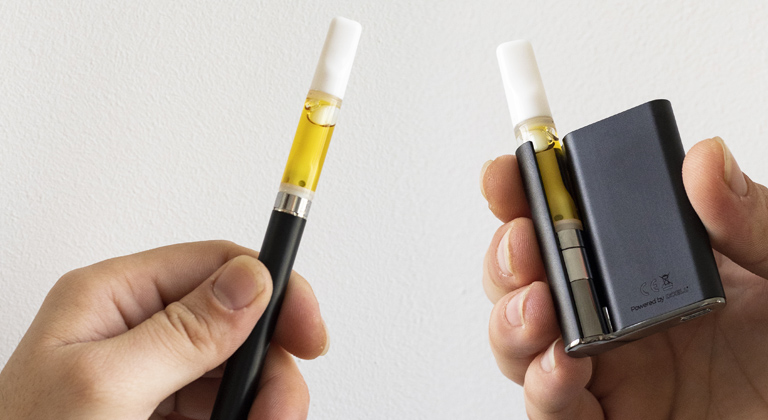Many claim that cannabis opens a pathway to a deeper perception of music; this ancient plant has been linked to the music scene for a long time.
However, nowadays it can be scientifically proven if this is true – what mechanisms does cannabis activate in our brain that allow us to better appreciate the notes of a song?
But before we delve into the subject, let’s take a look at the role of cannabis in music throughout history.
Cannabis and Music Throughout History
The relationship between cannabis and music dates back centuries. In cultures like India, cannabis has been used in religious and cultural ceremonies for over 2,000 years. The ancient Greeks and Romans also used cannabis to enhance their musical experiences.
In more contemporary scenes, cannabis has found a special place within music culture in various genres such as rock, reggae, hip-hop, and jazz. In fact, during the prohibition era in the United States, the term “Jazz Cabbage” was coined to refer to cannabis, as an attempt to associate cannabis with the black population and Jazz, in order to stigmatize not only the plant but also a specific group of people and discourage young white individuals from consuming this substance.
During the 1960s, cannabis became a central element of the hippie counterculture movement. Many songs of the time openly discussed the use of this plant, and artists like Bob Marley and Jimi Hendrix became icons of cannabis culture.
It is said that during that era, Bob Dylan introduced cannabis to the Beatles at the Delmonico Hotel in 1964, and apparently, Paul McCartney claimed to have reached a level of mental clarity like never before in his life.
Does Cannabis Consumption Enhance the Perception of Music?
Apart from the testimonials from both musicians and cannabis consumers who enjoy the sound of music, science can now shed more light on this matter.
Several studies have focused on understanding how cannabis and music impact our brains. It appears that sound is processed from the spinal cord to the cerebral cortex, so the entire central nervous system is activated when we listen to music. This means that our brain is actually engaged in musical perception more than when we engage in other activities.
How does music affect the brain?
Although the mechanisms through which music affects our brain are not yet fully understood, some studies indicate that music could reduce blood pressure in certain patients.
A study done in 2004 suggests that music may regulate and/or affect various brain functions through dopaminergic neurotransmission, and therefore, it could be effective in alleviating symptoms in various diseases. It seems that exposing our brain to the sound of music triggers the release of dopamine, the reward and satisfaction hormone, which makes us feel better and happier.
What does Science say about the Relationship Between Cannabis and Music?
Apart from the numerous testimonials claiming that cannabis enhances the perception of music, science has sought to investigate the reasons behind this phenomenon.
Both cannabis and music generate feelings of well-being.
As mentioned earlier, music contributes to the release of dopamine in our brains, which produces feelings of well-being. Since cannabis also has this effect on our brain in the short term, it can be inferred that the combination of both elements generates a high level of gratification for our brain.
Therefore, the musical experience, combined with the action of cannabinoids on the CB1 receptors of the endocannabinoid system located in our brain, would simultaneously activate our brain’s mesolimbic system, increasing dopaminergic release.

Why is Music Perceived more Deeply?
Many users have reported a deeper experience when listening to music after consuming cannabis, especially those who are not regular cannabis consumers.
Some studies (3) suggest that cannabis inhibits hippocampal activity, which interferes with the formation of short-term memories. This allows the mind to better focus on the present moment, improving concentration and preventing the mind from searching through memory for predictions of what will happen next.
Therefore, in individuals who are not accustomed to cannabis consumption, the combination of cannabis and music causes the brain to perceive melodies as something more novel and impactful.
Another study (1) found that when a person pays attention to music, their brain exhibits certain patterns of electrical activity in specific areas. These patterns include an increase in alpha signal in the parietal cortex, significant changes in theta band in temporal areas, and alpha band in occipital areas.
THC consumption also appears to have a measurable effect on musical processing in the brain, temporarily enhancing acoustic perception. Overall, these findings suggest that the temporary intensification of attention can enhance musical perception, and THC may have an effect on musical processing.

Cannabis consumption alters temporal perception.
Many consumers have reported that time seems to pass more slowly under the effects of THC. While this phenomenon also occurs in individuals who do not regularly consume cannabis (chronic users may eventually stop experiencing this effect), it is one of the most common side effects under high doses of tetrahydrocannabinol.
Several studies suggest that cannabis has an impact on our perception of time and the speed of our internal clock, causing an effect that seems to lead to the “expansion” of minutes and time.
Under the psychoactive effects of cannabis, some individuals may be surprised to find that while the clock shows that only five minutes has gone by, they perceive it as if it were 30 minutes, for example. This leads to a heightened auditory sense when listening to music because the listener experiences the songs in a more detailed manner, as they have “more time” to examine what they hear. Therefore, under the psychoactivity induced by cannabis, some people have the sensation of perceiving more musical information and an improved ability to discern musical notes.
As regulations progress, science is beginning to provide explanations for some of the experiences that were previously only reported by users through their testimonials.
References:
- Fachner, J. (2006). An Ethno-Methodological Approach to Cannabis and Music Perception, with EEG Brain Mapping in a Naturalistic Setting. Anthropology of Consciousness.
- Sutoo, D., & Akiyama, K. (2004). Music improves dopaminergic neurotransmission: demonstration based on the effect of music on blood pressure regulation. Brain Research.
- Paul, S., & Bhattacharyya, S. (2020). Cannabis use-related working memory deficit mediated by lower left hippocampal volume. Addiction Biology.

What did you think of the article? Do you like this type of content? Leave your comment and share your opinion with the community.
Cali Terpenes









